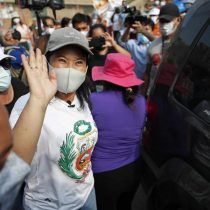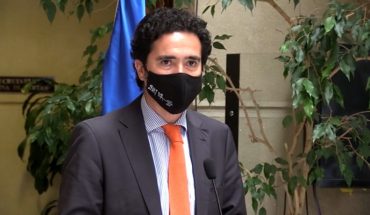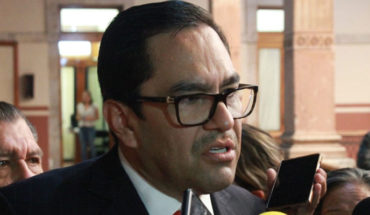
By becoming the leader of the world’s most powerful country, Donald Trump enabled and gave legitimacy to authoritarians around the world. He did so through a media use of lying and autocratic practice whose past is clearly another, that of democracies in crisis of the interwar years of the last century.
But now that Trump is gone, what will happen to those who followed his recipes for violence, absolute and bulk lies, racism, authoritarianism and militarization of politics to the letter and legitimize through it?
In Latin America, followers of a flatly trumped-up policy do not plan to change course. And they are even more explicit in their defense of autocratic models through the great lie that they are democratic.
The most recent case of is Keiko Fujimori in Peru, who in bagnarist and trumpist code combines his idea of establishing a “democracy” in his country with preaching against a non-existent enemy: “the ideology of gender”. Like Trump and Bolsonaro, Fujimori presents hes hesitation as the hard-handed but dubious candidate for combating corruption as she is prosecuted for the same crime, as well as a clear tendency to nepotism.
Like Fujimori, El Salvador’s president, Nayib Bukele shares an autocratic impatience with the functioning of democracy, but also disguises it in democratic clothing. What’s more, Bukele preceded Trump in an attempt to occupy Congress. In February 2020, the Salvadoran warlord ordered military troops and policemen to occupy the building and when he entered it, as Trump’s supporters would later do, he prayed sitting in the chair normally occupied by the president of parliament.
Before leaving the building, Bukele gave lawmakers a week to approve their proposals. It is clear that the president of El Salvador has followed, and often anticipated Trump’s recipe. And like him, he used and abused social media to announce government decisions from Twitter and even communicate with members of his cabinet.
He also stated on Twitter, “I’m officially the coolest president in the world.” And on another occasion, in a tweet posted at 2.46am he “ordered” citizens to go to sleep. Instead of being idiosyncratic, this novel use of the media landscape followed the Trumpist pattern and presented the country with alternative realities that combined with planned attacks on the legitimacy of the free press.
Similarly, Bolsonaro in Brazil coughed close to journalists when he was positive for Covid-19, and also used, and continues to use violent, homophobic and misogeneous insults when addressing journalists or referring to independent media. Two reports from press freedom organizations concluded that 2020 was the most dangerous year for professional journalism in Brazil’s recent history and that Bolsonaro’s government was the main source of the attacks.
The use of violence against dissidents comes in the context of Bolsonaro’s so-called reactionaries to try to shape the Brazilian people according to certain traditional religious precepts, as well as to arm the population to avoid the fantasy danger of a left-wing dictatorship. While it is Bolsonaro himself who is leading Brazil on a dictatorial path.
After storming Congress, Bukele justified his actions by claiming he was not a dictator. Like Trump, Bukele equated freedom and the sacred with his ability to storm institutions at the request of the people. He even identified his attacks on democracy and the independent press with his defense of “freedom of expression” and democracy.
In Peru, Keiko Fujimori explained that “hard hand means restoring the principle of authority to bring order. It means things are done. No way authoritarianism.” However, his personal and family history show that it is difficult to frame his ideas of democrates and repressions with democratic tradition.
This kind of distortion of authoritarianism, which is also presented as an advocate of democracy, has a sad old story ranging from Hitler, Franco and Pinochet to Bolsonaro and Trump. In 2019, Bolsonaro celebrated the 1964 coup that led to the most murderous military dictatorship in Brazilian history.
He falsely claimed that this dictatorship had established democracy in Brazil, even arguing that it had not really been a dictatorship. This attempt was no different from the classic fascist lie that fascist dictatorships were true forms of democracy.
Trump’s dictatorial plan to reverse the results of the presidential election through the violence of armed citizens also presented itself as a defense of democracy.
As part of the break-up of traditional Latin American elites, these new leadership turns elections into plebiscites based on lies about the functioning of democracy. As philosopher Hannah Arendt argued, politics and lies always go together, but in fascism lies increase both quantitatively (fascists lie brazenly) and qualitatively (fascists believe their lies and try to transform reality to resemble their lies).
In this sense, leaders such as Bolsonaro, Bukele and Fujimori return to the Trumpist post and turn their lies into a grave danger to democracy.
Federico Finchelstein is Professor of History at the New School for Social Research (New York). He was a professor at Brown University. PhD from Cornell University. Author of several books on fascism, populism, dictatorships and the Holocaust. His last book is “Brief History of Fascist Lies” (2020).
www.latinoamerica21.com, a plural medium committed to the dissemination of critical and truthful information about Latin America.
The content poured into this opinion column is the sole responsibility of its author, and does not necessarily reflect the editorial line or position of El Mostrador.





